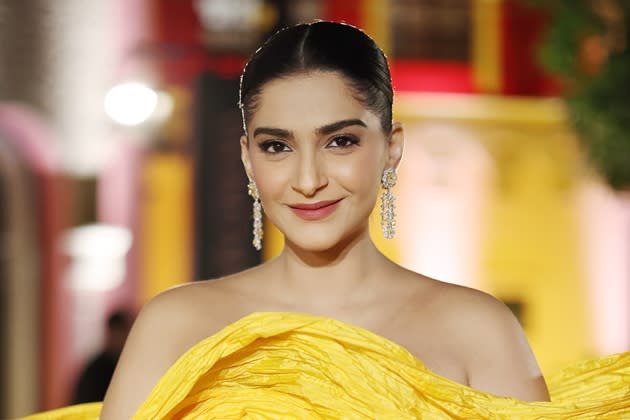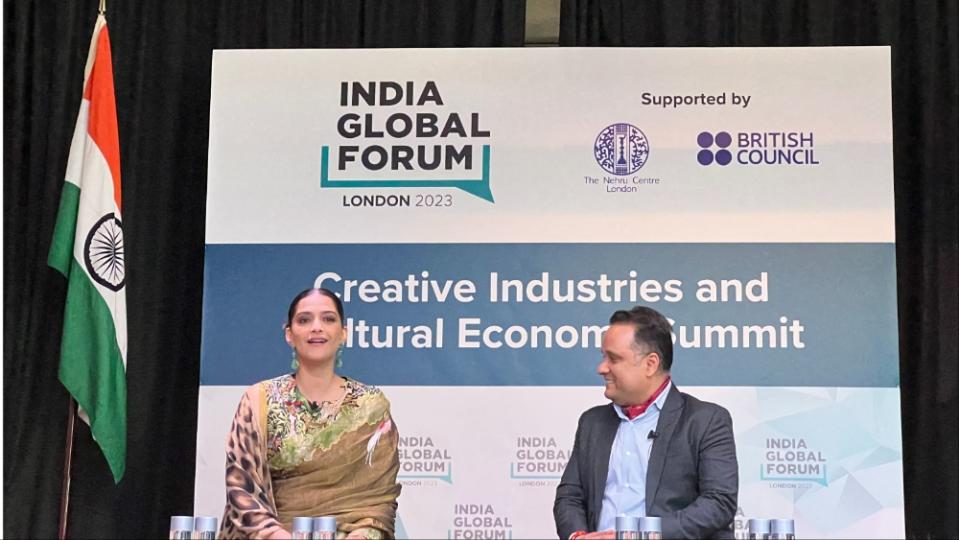Sonam Kapoor Calls Out ‘Humongous’ Gender Pay Gap in Bollywood, Diversity Tokenism in Western Casting

Bollywood star Sonam Kapoor has spoken out against the gender pay gap that exists in the industry, in which male Bollywood stars are typically paid much more than their female counterparts.
Kapoor was speaking at the Creative Industries and Cultural Economy Summit at London’s Nehru Centre as part of India Global Forum’s U.K.-India Week on Wednesday. She was in conversation with Amish Tripathi, minister (culture and education), Indian High Commission and director Nehru Centre, who is also a bestselling author.
More from Variety
Sony Music's Distribution Company AWAL Launches in India and South Asia
India Confirms Interest in Raising International Production Incentives
Bollywood Star Sonam Kapoor Signs With YRF Talent (EXCLUSIVE)
Kapoor said that while Bollywood is changing, the change isn’t quick enough. “The gender pay gap is humongous. And I don’t think that will be narrowing very soon, unfortunately, but the roles are getting meatier for sure,” Kapoor said, adding that her contemporaries like Alia Bhatt and Deepika Padukone have pursued films where they could play the central character.
The Bollywood gender pay gap is something that Kapoor’s contemporary Priyanka Chopra Jonas has also spoken out about recently. “I’ve never had pay parity in Bollywood,” Chopra Jonas told the BBC. “I would get paid about 10% of the salary of my male co-actor. [The pay gap] is large, substantially large. And so many women still deal with that. I’m sure I will too if I worked with a male co-actor now in Bollywood.”
Kapoor made her acting debut with Sanjay Leela Bhansali’s “Saawariya” (2007) and has won critical and commercial acclaim for “Aisha” (2010), “Raanjhanaa” (2013), “Khoobsurat” (2014), “Neerja” (2016), “Veere Di Wedding” (2018) and “Ek Ladki Ko Dekha Toh Aisa Laga” (2019). The actor is also a regular on the Cannes red carpet as an ambassador for global brands.
In 2020, Kapoor took a career hiatus to start a family. Her return will begin with two projects — a series and a film — details of which are currently under wraps.
Kapoor is represented for Indian projects by leading Indian studio Yash Raj Films’ talent management division, YRF Talent. UTA continues to represent Kapoor for international film and TV projects. Speaking about casting diversity in western projects, Kapoor said: “It’s a token thing where everybody’s like, ‘Oh, we have a diverse cast.’ But who is your lead?”
“I’ve been represented internationally for a while, and you’re always cast as the exotic Indian girl. And I don’t think that has changed much,” Kapoor said. “There are strides being made, but very few — like Mindy Kaling is doing something… but there could be more stuff that will be done. So diversity is a token word that needs to be explored and taken more seriously, because brown people are the most populous of the world at this moment.”

Kapoor’s next film, the Glasgow-set “Blind,” a remake of the Korean film of the same name, releases July 7 on streamer JioCinema.
Kicking off the summit, Alison Barrett, country director – India, British Council and U.K. minister for cultural and educational affairs, said research commissioned by the Council shows that the creative industries sector accounts for 2.5% of India’s GDP.
Barrett added that to make the sector more robust, connected and ready for the future in India and internationally, the Council’s research points to the need for a more organized and interconnected creative arts infrastructure that spans across different forms, because sectors depend on each other; the establishment of a creative economy task force — a cross-government department from the 14 ministries that have a mandate for arts and culture in India; a regulatory framework; and financial investment and innovation.
Best of Variety
Sign up for Variety’s Newsletter. For the latest news, follow us on Facebook, Twitter, and Instagram.
